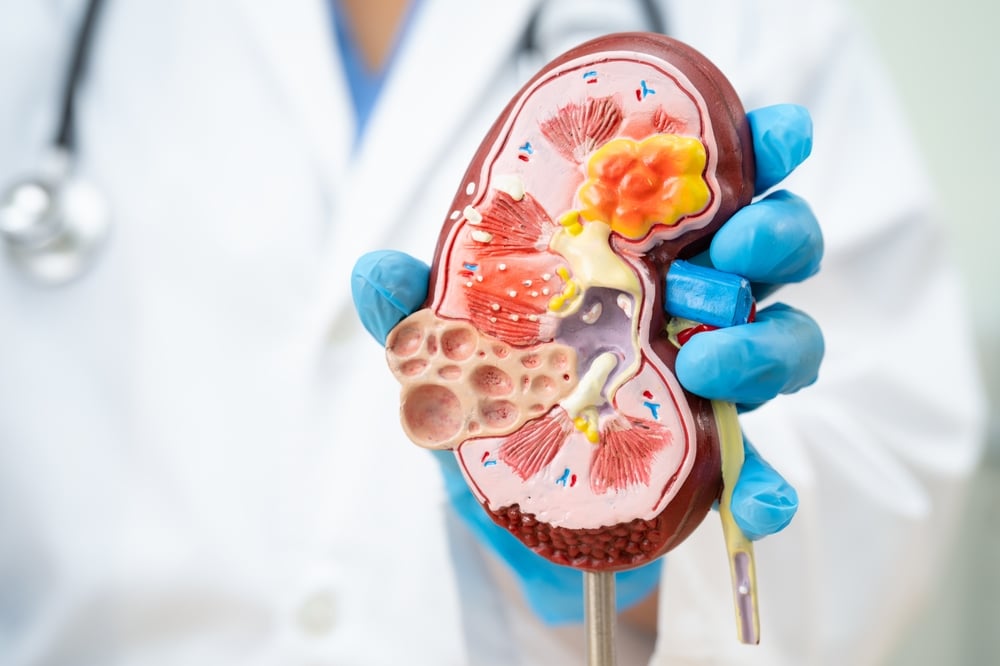Nurture Your Kidneys: Easy Tips For A Healthier Life
Your kidneys play a crucial role in your overall health, acting as natural filters in your body. As they tirelessly remove waste and balance fluids, they keep your bodily systems running smoothly. However, neglecting kidney health can lead to unwanted complications, ranging from infections to chronic disease. The reassuring news is that protecting your kidneys doesn’t require drastic overhauls to your lifestyle. A handful of small, everyday habits can make a significant difference. Staying hydrated, choosing nutritious foods, and being cautious with medications, like Dulcolax Chewables, are simple yet effective ways to ensure your kidneys receive the care they need. Let’s delve into practical methods to maintain kidney health, all while making it relatable and straightforward.
Stay Hydrated, But Don’t Overdo It
Water is your kidneys’ best friend. It not only helps flush out toxins but also plays a vital role in preventing the formation of kidney stones. Think of your body as a car engine; if it runs dry, it’s forced to work overtime, which can lead to breakdowns. Ideally, aim for at least eight glasses of water a day—a good rule of thumb, but it’s essential to listen to your body. Factors like the heat, your activity level, and even your diet can influence how much you need.
However, it’s crucial to strike a balance. Drinking too much water can actually dilute essential electrolytes, which might strain your kidneys unnecessarily. A quick check? If your urine is a pale yellow, you’re likely good to go. Darker urine? Time for a drink.
Maintain A Kidney-Friendly Diet
What you put on your plate matters—especially for your kidneys. Incorporating a balanced diet rich in fresh fruits, vegetables, whole grains, and lean proteins is like giving your kidneys a healthy hug. Reducing sodium intake is particularly important, as too much salt can lead to fluid retention and high blood pressure, creating extra stress on your kidneys.
Some foods are particularly beneficial for kidney health. Think of colorful berries, vibrant leafy greens, and crisp apples—all packed with antioxidants that help reduce inflammation. Fish and nuts provide those all-important omega-3 fatty acids. On the flip side, processed foods, red meat, and too much dairy can weigh your kidneys down, so moderation is key.
Exercise Regularly, But Find Your Balance
Staying active is not just about fitting into your favorite jeans; moving your body enhances circulation, aids in weight management, and reduces risks for diabetes and high blood pressure—two primary culprits behind kidney disease. Just 30 minutes of walking, practicing yoga, or even a brisk walk can work wonders for your kidney function and overall health.
But be cautious—overdoing it can overwhelm your muscles and result in a higher concentration of waste in your bloodstream, which can tax your kidneys. Finding a sweet spot in your exercise routine will help you maintain kidney function long-term without pushing your body to its limits.
Be Cautious With Over-The-Counter Medications
While it’s tempting to reach for a relief pill for that nagging headache or sore back, frequent use of certain over-the-counter medications can take a toll on your kidneys. Nonsteroidal anti-inflammatory drugs (NSAIDs)—think ibuprofen and naproxen—may reduce blood flow to these critical organs if used excessively.
Even common laxatives, like Dulcolax Chewables, should be approached with care. While they might offer temporary relief, over-reliance can disrupt your body’s natural balance and create strain. Stick to the recommended dosages, and don’t hesitate to reach out to your doctor if you’re relying on these meds often.
Manage Blood Sugar And Blood Pressure Levels
Two of the most significant red flags for kidney health are diabetes and hypertension. When blood sugar levels are consistently high, the tiny blood vessels in your kidneys can become damaged, leading to complications over time.
Ensuring regular checkups and maintaining a balanced diet combined with physical activity is crucial in regulating these conditions. Reducing processed sugars, opting for fiber-rich foods, and incorporating some stress-busting practices, like mindfulness or deep-breathing exercises, can make a world of difference for your blood pressure and blood sugar management.
Get Enough Sleep And Manage Stress
Like any part of your body, your kidneys thrive on quality sleep and effective stress management. Poor sleep can heighten kidney stress and increase your risk of complications. Strive for 7-9 hours of restful sleep each night, allowing your body essential recovery time.
Stress can also be a silent enemy, ramping up blood pressure and triggering inflammation. Whether you prefer meditation, writing in a journal, immersing yourself in hobbies, or simply taking time to relax, finding ways to manage stress is vital for your overall health and, subsequently, the health of your kidneys.
Limit Alcohol And Avoid Smoking
Excessive alcohol consumption leads to dehydration, which puts your kidneys into overdrive to eliminate toxins. This strain can contribute to high blood pressure, a leading factor in kidney disease.
Similarly, smoking compounds the problem by narrowing blood vessels, restricting blood flow to your kidneys, and challenging their optimal function. Reducing alcohol intake and quitting smoking can dramatically improve your kidney health in the long run, allowing them to operate more efficiently.
Taking care of your kidneys doesn’t have to be complicated or overwhelming. Small, consistent habits can lead to lasting benefits, giving your kidneys the support they need to stay healthy. By making lifestyle tweaks—like drinking ample water, prioritizing nutritious foods, integrating physical activity, and being mindful of medications—you empower your kidneys to function at their best, ultimately leading to a healthier you. You’re not alone in nurturing your health journey; together, we can ensure our kidneys remain strong and resilient for years to come.
















